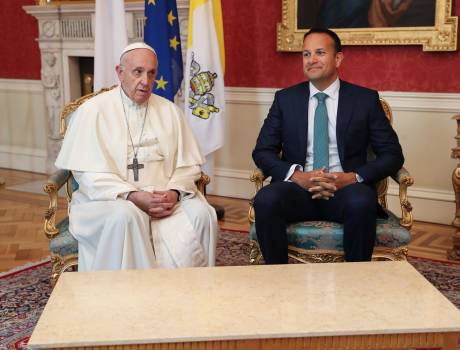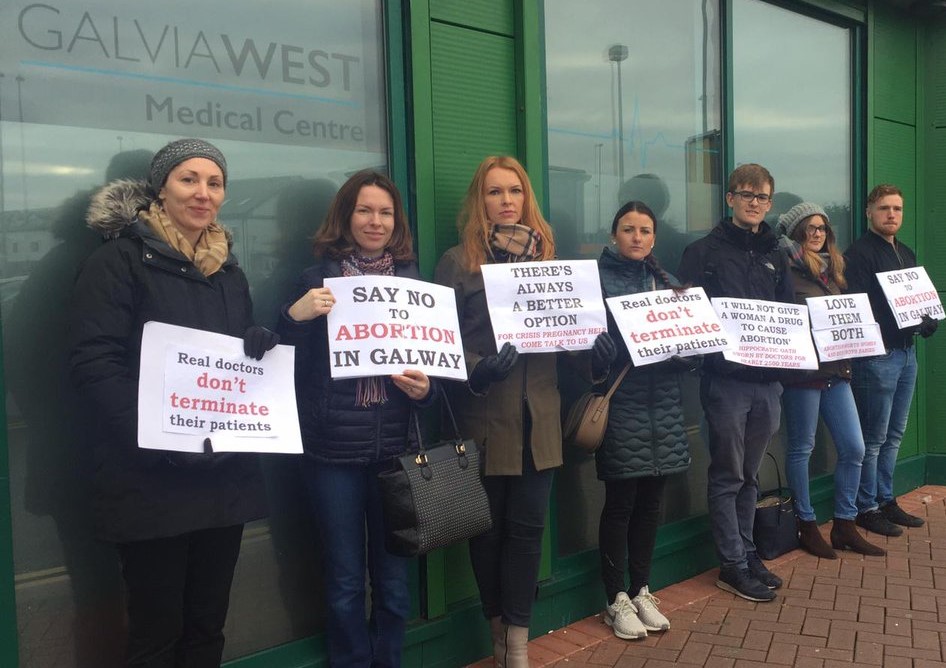
There is a ‘very real danger’ that the expression of Catholic beliefs could become a hate crime amid a ‘present culture of heightened sensitivity,’ the Catholic Church in Scotland has warned.
The comments come in the Church’s official submission to a Scottish Government consultation on proposed hate crime legislation.
In its response, the Church argued for upholding the fundamental right to freedom of expression, as “suppressing this freedom will create divisions and foster grievances across society.”
They continued: “There is a climate of heightened sensitivity in the present culture and there is a very real danger that expressing or even holding individual or collective opinions or beliefs will become a hate crime. . . . As an example, it said that ‘some people might suggest that expressing the Catholic Church’s position on marriage or human sexuality could be an attempt to stir up hatred.’”
They added: “This would obviously be wrong. There must be room for robust debate and exchange of views. Otherwise we become an intolerant, illiberal society.”

A world-renowned theoretical physicist has criticised atheism as an unscientific, dogmatic declaration. Marcelo Gleiser, a professor of physics and astronomy at Dartmouth College, was speaking after winning the 2019 Templeton Prize.
In an interview with Scientific American he said that atheism is inconsistent with the scientific method as it is merely a categorical statement that expresses belief in nonbelief. Science, however, proceeds by way of a hypothesis and then evidence for or against it.
An agnostic might say he has no evidence for God but, “on the other hand, an agnostic would acknowledge no right to make a final statement about something he or she doesn’t know about. ‘The absence of evidence is not evidence of absence,’ and all that,” he told the magazine.
Gleiser also expressed his belief in Science’s need for humility, and for scientists to be ‘honest’ in the claims they make.
He rejects the notion that science alone can lead to ultimate truths about the nature of reality.
He often describes science as an “engagement with the mysterious,” inseparable from humanity’s relationship with the natural world. Gleiser’s writings propose that modern science has brought humankind back to the metaphorical center of creation – his doctrine of “humancentrism” — by revealing the improbable uniqueness of our planet, and the exceptional rarity of humans as intelligent beings capable of understanding the importance of being alive.

A pro-life student society in Scotland has won a protracted legal battle for official recognition.
“Glasgow Students for Life” was granted affiliation by Glasgow University Students’ Union following a legal challenge to a previous decision to deny the group membership.
The pro-life students argued that the initial denial violated the UK Equality Act of 2010 and contravened the free debate of contrasting ideas.
“Freedom of speech is the foundation of every free and democratic society. Of all places, a university is where students should be free to debate and explore ideas, even those with which we may disagree. It simply does not work when a students’ body ‘picks sides’ and censors the one with which it disagrees. It is sad that it took the prospect of legal proceedings for the Representative Council to recognize this. We congratulate the ‘Glasgow Students for Life’ on their new affiliation,” said Laurence Wilkinson, Legal Counsel for ADF International in London.

Deities enforcing moral codes tended to appear in ancient societies after those societies had already developed into significant and complex political bodies.
That’s according to new research from Keio University in Kanagawa, Japan, published this week in Nature magazine.
A team of scientists analyzed the relationship between social complexity and watchful gods in 414 societies spanning the past 10,000 years from 30 regions across the globe. They found that belief in just gods punishing the guilty and rewarding the righteous usually followed increases in social complexity, generally appearing after the emergence of civilizations with populations of more than about 1 million people.
According to anthropologist Patrick Savage the research suggests that religion is playing a functional role throughout world history, helping stabilize societies and enabling strangers to cooperate with each other. “In really small societies, like very small groups of hunter-gatherers, everyone knows everyone else, and everyone’s keeping an eye on everyone else to make sure they’re behaving well. Bigger societies are more anonymous, so you might not know who to trust.”
At those sizes, you see the rise of beliefs in an all-powerful, supernatural deity watching over and keeping things under control, Savage added.

As World Down Syndrome Day is being marked, Germany’s highest decision-making body in healthcare issues has proposed making prenatal genetic tests that detect Down Syndrome a standard part of a public health insurance plan. Down Syndrome support groups fear the move will see an even greater number of abortions among women who discover their unborn child has the condition.
Lifecodexx AG, a German company behind a popular prenatal test, says it is “cautiously optimistic” that costs for its test, between €129 and €299, will be covered by public health insurers.
Abortions in Germany available up to the 12th week without limit. Later terminations are possible, including after a Down Syndrome diagnosis, if a psychologist assesses the woman as unable to cope. About 90pc of German women who discover their child has the condition go on to have an abortion.
Some 25 organisations have come together to lobby against the proposal, including 20-year-old Natalie Dedreux, who has Down Syndrome. “We don’t want to be aborted,” she said. “The world should stop being afraid of us.”

A Catholic media commentator has been instructed by police to present herself for questioning after being reported for using the wrong pronoun to describe a transgender girl on Twitter.
Caroline Farrow, 44, has been told police in Surrey want to conduct a “taped interview under caution” after receiving reports she had made ‘transphobic’ comments online. She is being investigated under the Malicious Communications Act, and although the interview would be voluntary, she claims she could face arrest if she does not attend.
Mrs Farrow, who does not believe people can change sex, had taken part in a heated debate with transgender rights campaigner Susie Green on Good Morning Britain. Mrs Green’s transgender daughter Jackie Green was born Jack before becoming one of the youngest people in the world to undergo sex-change surgery after turning 16. Six months after the on-air debate, Mrs Farrow and Mrs Green were involved in a spat on Twitter, during which Mrs Farrow allegedly used the wrong pronoun to describe Mrs Green’s daughter.
Mrs Farrow wrote on twitter: “’We are in the middle of a national conversation about what it means to be male and what it means to be female. Nonetheless, following my appearance on National Television the CPS [Crown Prosecution Service ] have decided I need to be interviewed under caution for misgendering Susie Green’s child.”
She added: “I don’t even remember said tweets. This was in September! I have done nothing wrong, nothing illegal and will happily do jail time for my right to say that people cannot change sex.”

The Government’s lack of progress on developing a new covenant between Church and State that was proposed by the Taoiseach in his address to Pope Francis last August, has been raised by the Catholic Archbishop of Dublin.
In an address in Limerick yesterday, Archbishop Diarmuid Martin said that last August Leo Varadkar “expressed the belief that ‘that the time has now come for us to build a new relationship between Church and State in Ireland – a new covenant for the 21st Century’”.
“He spoke about an Ireland ‘in which religion is no longer at the centre of our society, but in which it still has an important place’,” the Archbishop said.
However, he added that “so far no progress has been made by the Government” in developing the idea.
While Brexit was taking up a lot of politicians’ time, the Archbishop said “this does not mean that this dialogue is not important not just for the interests of churches and Government, but rather for the good of Irish society”.

Edinburgh City Council has become the first in Scotland to reject proposals to create so-called “censorship zones” outside abortion clinics which would have banned peaceful pro-life prayer vigils.
A joint working party involving The City of Edinburgh Council, NHS Lothian and Police Scotland had considered creating a zone which would have prohibited prayer, information and conversations taking place in proscribed areas around local abortion clinics.
But a recent report has stated that there was “no overwhelming evidence” the prayer vigils outside clinics were causing “unnecessary distress”.
The report on peaceful pro-life vigils, which was presented to the Edinburgh South East Locality Committee, added it “did not feel the necessity to enact any police measures”.
Michael Robinson, Communications Director for SPUC (Scotland) who said: “We know from official figures that poor women in Scotland have abortion rates twice as high as those who are well off. Peaceful pro-life vigils offer practical, emotional and financial support to vulnerable women who might otherwise be forced into an abortion they do not want. This is a significant victory for common sense, for free speech and above all for the many vulnerable women who choose to have their babies with assistance from pro-life vigils.”
And Edinburgh mum Patricia Maclennan, who organises peaceful vigils in the city, added: “We are so grateful to the council and the NHS for respecting our right to freely pray. We have been offering support, love and compassion for more than eleven years and in that time, we have never been anything put peaceful and respectful in our behaviour.”

Leading scientists have called for a global moratorium on the use of powerful DNA editing tools to make genetically modified children.
The appeal was made in the journal Nature by a group of 18 scientists from seven countries (Canada, China, France, Germany, Italy, New Zealand and the U.S.), including some leaders in the development of CRISPR technologies, the most precise tool available for modifying DNA. The signatories have called for a voluntary moratorium on all studies involving gene editing of human eggs, sperm or embryos — so-called germline cells. Scientists proposed a similar moratorium in 2015, but in this newer version, the scientists go further, asking not just individual researchers to agree to stop work on gene editing human germline cells, but calling on nations to create explicit laws or regulations to prevent such studies for now, and to develop a framework for allowing the studies when they deem they are safe and acceptable.
The call for a moratorium received strong backing from the US National Institute of Health. “We have to make the clearest possible statement that this is a path we are not ready to go down, not now, and potentially not ever,” the NIH director, Francis Collins, told the Guardian.
The call comes four months after a team of scientists in China used CRISPR to modify the DNA of healthy twin human embryos in a bid to genetically “vaccinate” them against HIV infection.

The Catholic Bishops have appointed Bishop Kevin Doran of Elphin to be the first chairman of their recently established www.councilforlife.ie.
The Council had been announced at the Summer 2018 meeting of the Bishops and was tasked with advising and advocating for the Church on a consistent ethic of life and care for those most at risk in the post-repeal political landscape.
Concerning the objective of the Council for Life, Bishop Doran said “The council will give priority to exploring how best, in the current socio-cultural context, the Catholic community can offer practical support to women in crisis pregnancy, giving their unborn babies the best chance at life. It will also give priority to promoting an understanding of life questions among young people and to engaging them in the challenge of defending life.”